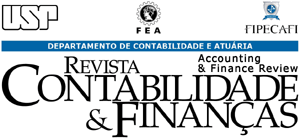In recent years, the main private Brazilian banks have presented a continuous increase in the number of clients in their portfolios and, consequently, successive growth of credit operations and revenues obtained through the high interest rates or spread charged on loans to individual borrowers, such as credit limit and revolving credit. Moreover, the increase in the number of clients also increases the risk of default. Hence, it is essential that banks carry out strategies to implant default prevention actions. In order to contribute to this endeavor, this paper presents three propositions or action strategies, aimed at reducing risks in natural-person revolving credit portfolios: 1. "The Moral Risk Discouraging Agent", 2. The Determination of the Efficient Risk-Return Frontier", and 3. "The Futures Market of Default Ratios". This paper also proposes an econometric model to assess the impact of nineteen systemic variables related to individual default risk observed in revolving credit. The results obtained through the simulations led to the conclusion that the econometric model and the implementation of each of the three strategies contribute to the inhibition and better monitoring of default in individual revolving credit portfolios.
Consumer Credit; Default Risk; Credit Portfolio























